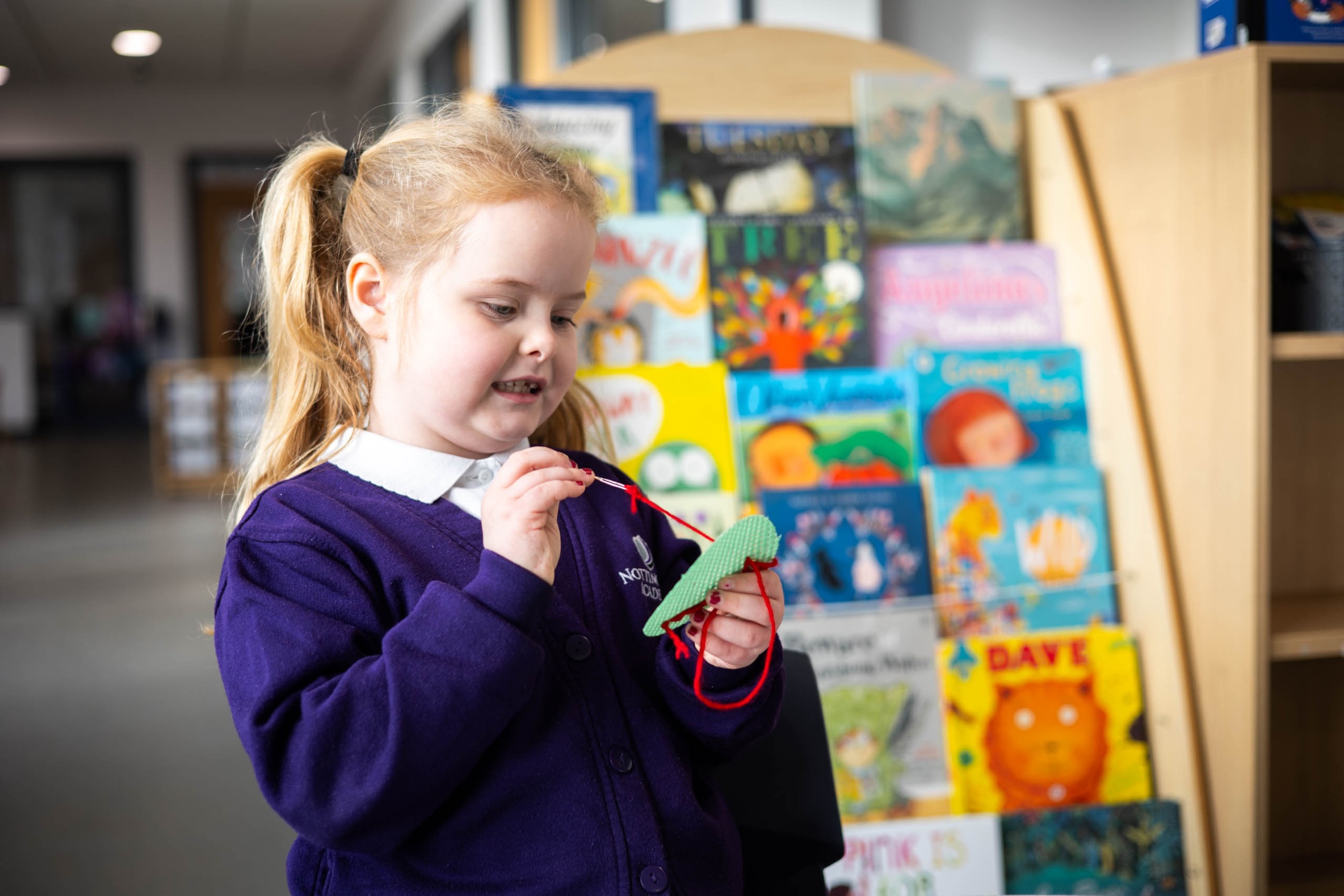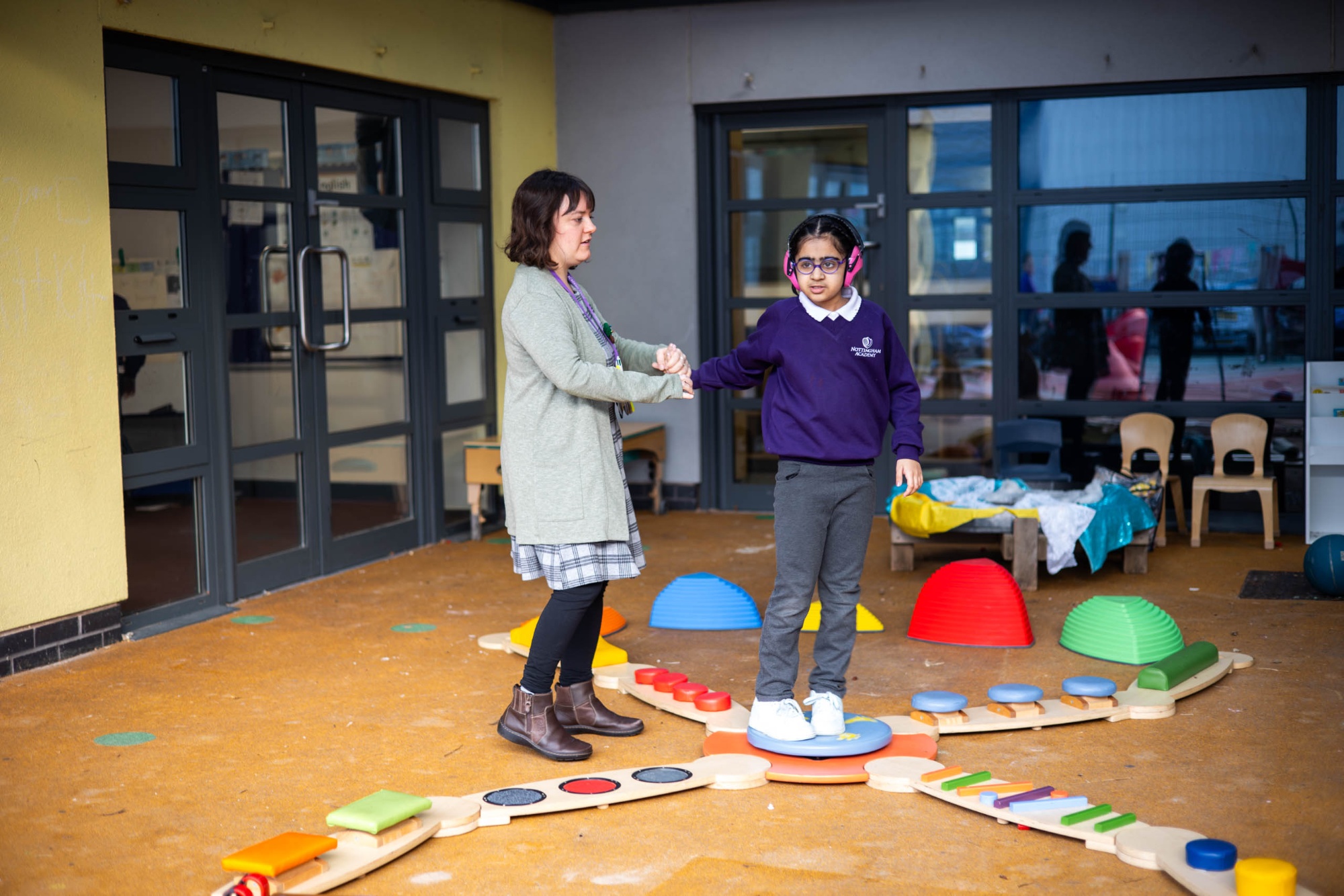Religious Education
Intent:
Religious Education contributes to children’s spiritual, moral, social, cultural and intellectual development. At Nottingham Academy, our intent is that children will be encouraged to respect the religious commitment of others and embrace that people have the right to hold different religious beliefs. At Nottingham Academy, we teach RE in line with the legal requirement, by following and adhering to the agreed Nottingham City Syllabus. This is further enhanced by our children having the opportunity to visit places of worship in order to enrich their knowledge of a variety of religions and cultures through first-hand experiences.
Implementation:
- We use the Nottinghamshire syllabus for RE to deliver a high quality RE curriculum.
- The focus of RE for KS1 enables children to develop their knowledge and understanding of religions and world views.
- Through carefully planned lessons, children find out about simple examples of religion that are drawn from local, national and global contexts.
- Subject specific vocabulary is explicitly outlined in our progression documents and on our Sticky Knowledge documents.
- Children are taught to raise questions and begin to express their own views in response to the material they learn about and in response to questions about their ideas.
- Our RE curriculum is engaging and interactive, using story, music, drama, activity, teamwork, thinking structures and language work to enable deepening engagement from every child.
- Children are introduced to an extended range of sources and artefacts to enhance their curiosity.
- They should be encouraged to ask increasingly challenging questions about religion, belief, values and human life.
- Pupils learn to express their own ideas thoughtfully and creatively in response to the material they engage with, identifying relevant information, selecting examples and giving reasons to support their ideas and views.
Substantive and disciplinary knowledge
In Religious Education, substantive knowledge refers to the established ‘facts’ of religious and non-religious traditions, the different ways people express religion and non-religion in their lives, as well as knowledge of related artefacts and concepts. This is clearly mapped out in our Sticky Knowledge documents, which can be found by following the links below.
Disciplinary knowledge in RE is where children learn how to ask questions about the substantive knowledge that they have acquired. It allows children to think critically and apply the information they have learnt about different religions, helping them to understand the differences and similarities between themselves and others. Through this, they develop respect, tolerance, empathy and have a much greater understanding of religions around the world, which links closely to the character strand of our curriculum. Our detailed progression documents map out these skills throughout our curriculum.
Sequence of learning:
Teachers plan a sequence of learning within RE following the structure below:


LINK IT! Using our school progression document which is designed around the Nottinghamshire RE syllabus, teachers consider links to prior learning in order for children to build on what they already know. A short sticky knowledge quiz identifies gaps in prior learning which can be addressed within the unit of work. Retrieval practice starts every lesson and allows children to revisit and embed key knowledge.

LEARN IT! Teachers plan and deliver engaging and meaningful learning opportunities with explicit teacher modelling, opportunities for children to talk, ask questions, compare and practice respect and tolerance as they develop knowledge of a range of religions.

CHECK IT! Teachers plan for opportunities to review and check learning each lesson to ensure adaptations can be made to the next lesson. Teachers plan and deliver explicit learning objectives and mark against these so that children know whether they have been successful in lessons.

SHOW IT! At the end of a unit of work, children will have produced a piece of work which showcases their learning. 'Show it' pieces of work may include; producing a whole class non- fiction book, a whole class debate, a recount of a trip to a place of worship or a fact file around a key religious figure or leader.

KNOW IT! A short Sticky Knowledge quiz allows the children to demonstrate what they know and remember from their unit of work. These assessments are used to inform teacher judgements.
Sticky Knowledge:
For each RE unit of work, we have compiled 'Sticky Knowledge' sheets, which essentially show what we want our children to know and remember at the end of each topic. The key substantive knowledge is explicit and will form the basis of our retrieval practice for each lesson. Through regular opportunities to revisit knowledge, it will become embedded in the children's long-term memory. Sticky knowledge outlines key vocabulary which is progressive across the primary phase. Within the sticky knowledge documents, key religions stories are highlighted as a focus for the unit of work. Below are the links to the Sticky Knowledge identified for each year group in RE.
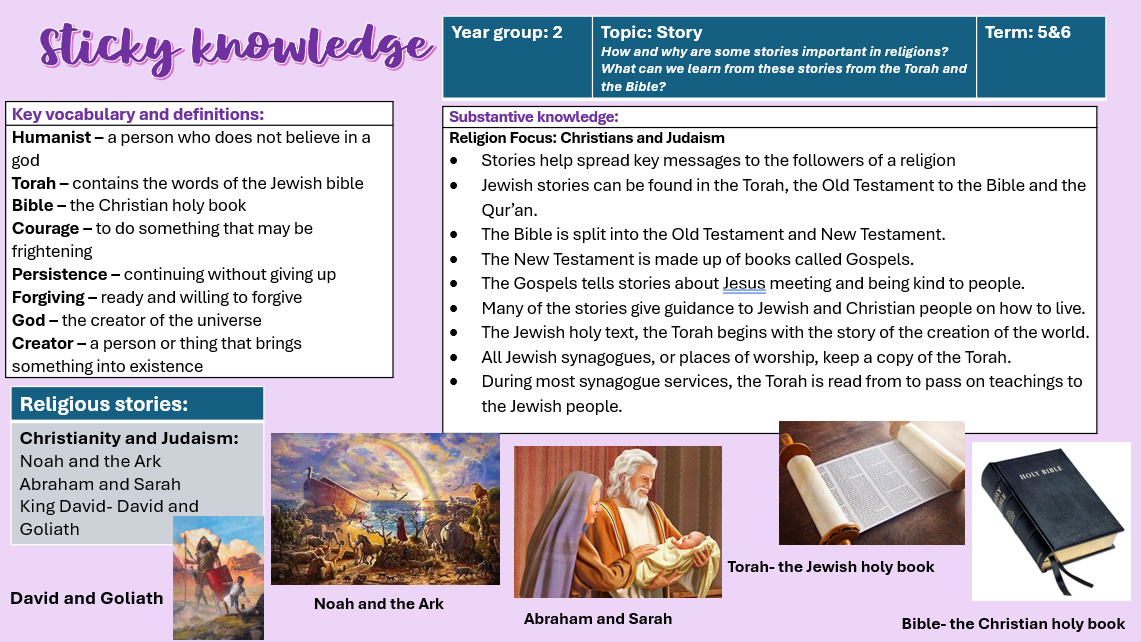
Curriculum enhancements and visit:
At Nottingham Academy, we value the importance of giving our children immersive and enriching experiences which make learning real and relevant. Within RE, we plan for children to visit various places of worship in order to put into practice the importance of respect and tolerance of differences. In addition to this, our children benefit from visits external speakers from religious groups.
Year One recently enjoyed a visit from Kate Fear, a speaker from Trinity Church. This brought their learning to life around Christian festivals and celebrations:
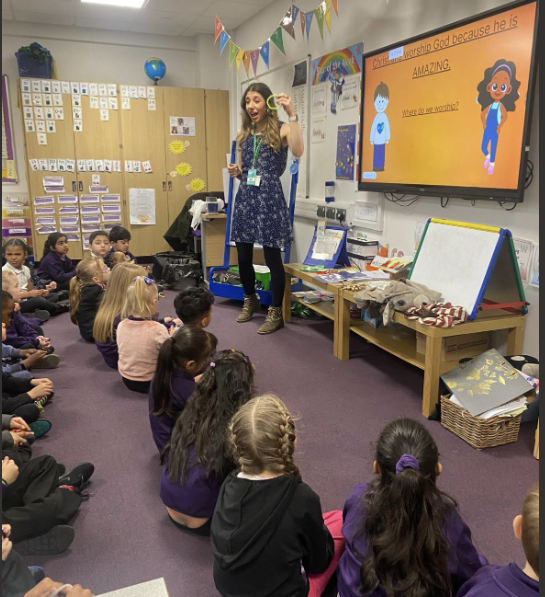
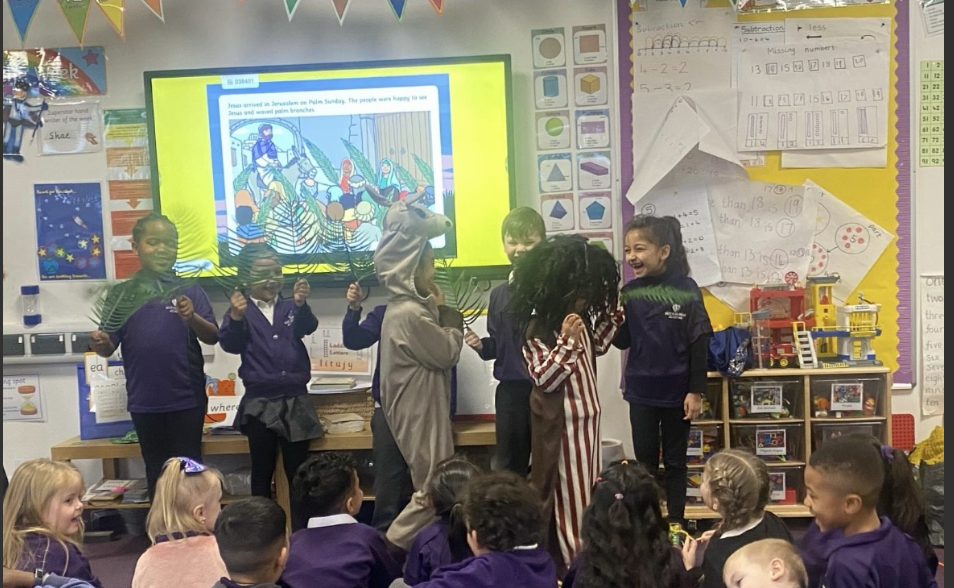
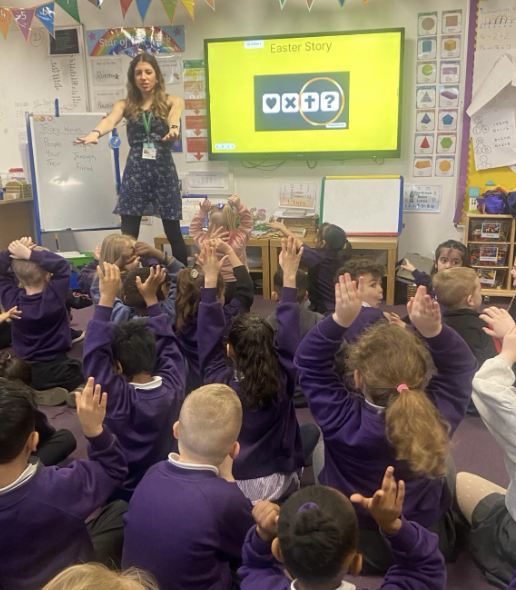
RE showcase event:
Following the recent Eid and Easter celebrations, we wanted to bring the school community together to share the incredible work the children have produced linked to Christianity and Islam in the spring term. It was a fantastic opportunity for the children to share their learning as well as demonstrate how we follow British Values in school, particularly tolerance of different faiths and beliefs. Parent feedback from the event included:
"This is a brilliant idea to showcase children's work. Particularly loved the focus on religion".
"What a great opportunity to see the children's work. Very well-organised. Good to read and see what other religions do".
"It was nice to see all the hard work students did to create a beautiful showcase".
"Very impressed with the work on display. Nice to see what the children have been learning. Very inclusive".
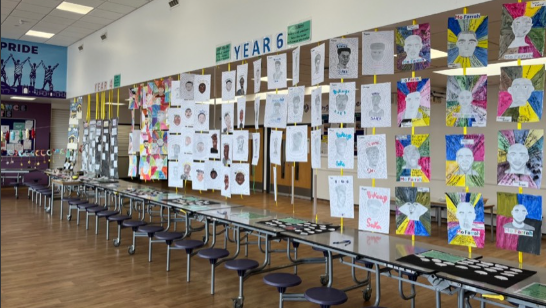
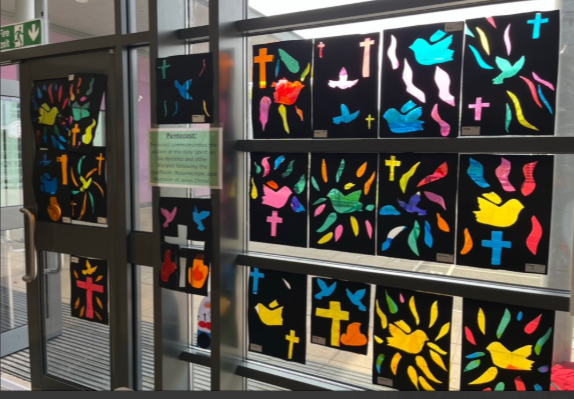
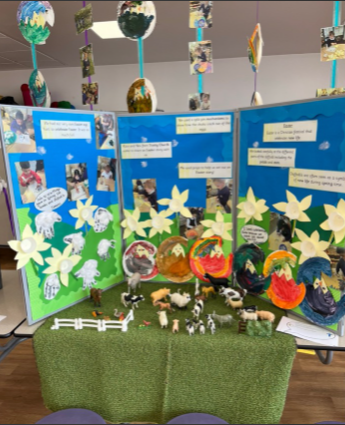
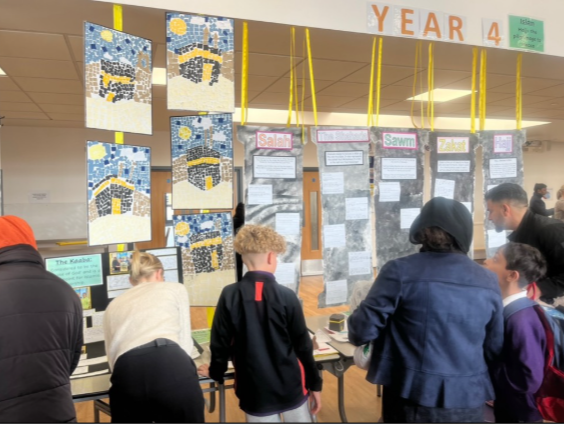
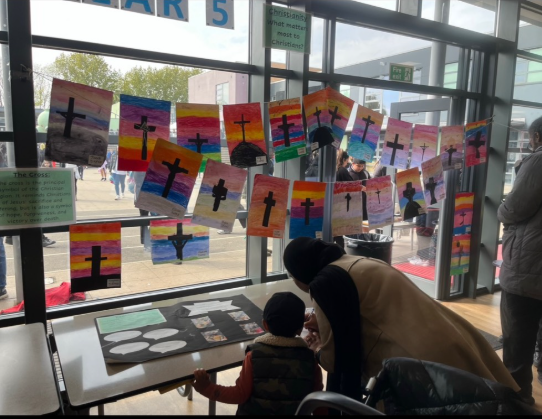
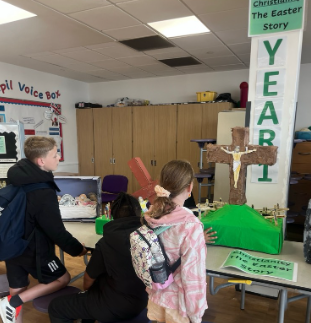
Impact
- Teacher assessments and Sticky knowledge quizzes demonstrate that children make good progress in RE.
- Monitoring of children's voice in RE demonstrates enthusiasm for the subject as children can talk about their learning, especially when recalling RE enrichment opportunities, including trips to places of worship.
- Our children demonstrate an understanding of a range of RE vocabulary which can be applied confidently in their oral and written work. Vocabulary is progressive across school.
- As theologists, our children can use their skills to pose questions, listen to the views of others, make comparisons, practice respect and tolerance of others.
- Our children enjoy a range of RE enrichment opportunities which allow them to become immersed in the subject and encourages a genuine interest and respect for all religions.
Parental Right to Withdraw from Religious Education (RE)
We respect the rights of parents and carers regarding their child’s education. Under current legislation, parents and carers have the right to withdraw their child from all or part of Religious Education (RE) lessons. This includes activities related to Religious Education that do not form part of the statutory National Curriculum.
If you wish to exercise this right, we ask that you inform the school in writing, detailing whether you are withdrawing your child from all or specific parts of the RE curriculum. We are happy to discuss any concerns you may have and provide further information to help you make an informed decision.

